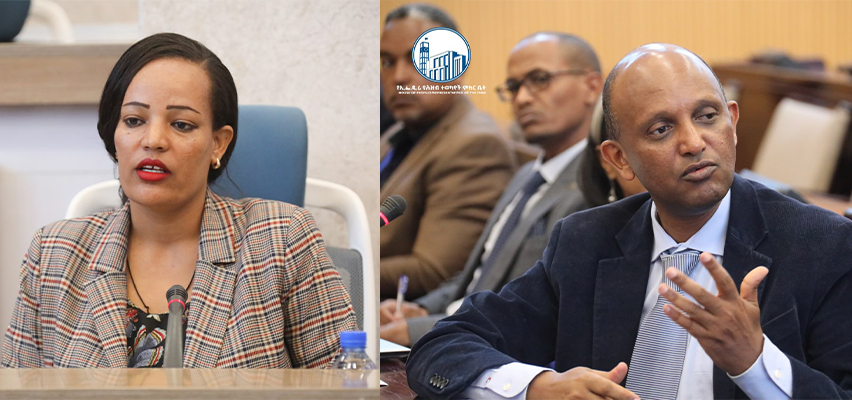The Commission has been a reliable source of information

The Standing Committee on Law, Justice and Democracy in the HoPR of the FDRE said the Ethiopian Human Rights Commission (EHRC) has become reliable source of information working as an independent and impartial.
The Standing Committee reviewed the Commission's ten-month performance report. The committee said the commission is working to provide accurate information to local democratic institutions and to other countries. The committee also stressed the need to work with other bodies to expand this experience.
The Chairperson of the Standing Committee, Honourable Etsegenet Mengistu, noted that the Commission is working independently and impartially to achieve the purpose for which it was established by the proclamation, and that the Standing Committee strongly observes its efforts to ensure the lasting respect for human rights and should continue to do so.
She added that EHRC have the right to work independently to prevent human rights abuses. She also noted that it could be more effective if the commission works in partnership with the media, the federal prison administration, courts, and other democratic institutions to protect human rights abuses.
Although the commission is working well with the Ministry of Education to ensure that students have a clear understanding of human rights, the commission's human rights education needs to be reinforced to make it accessible to others, she said.
She also called on the Commission to coordinate its monitoring and research activities on gaps in human rights. According to the chairperson, further research is needed to establish more branch offices in areas with large populations.
Ethiopian Human Rights Commission Commissioner Daniel Bekele(Phd), for his part, told members of the Standing Committee that an agreement has been reached with the Ministry of Education to include human rights issues in the curriculum.
He said the commission is providing regular updates to the public by taking and studying human rights violation complain as input.
Currently, the commission is working to be accessible in all parts of the country except Tigray regional state. He said the commission's capacity is limited and it is working to reach the most in need parts of the country.
He further told the Standing Committee that in addition to the eight branch offices in the regional capitals, it is necessary to open more branches.
Deputy Commissioner of the Ethiopian Human Rights Commission, Rakeb Mesele, said efforts are being made to create free and independent institution in accordance with international standards.
She explained to the Standing Committee that there are people who can be arrested without a court order and that suspects can be detained for a long time without charges.
The deputy commissioner added that efforts should be made to stop the internal displacement of citizens. She further added that displaced people were registered to participate in the national election.
Copyright 2020 - All rights reserved. House of Peoples' Representatives
